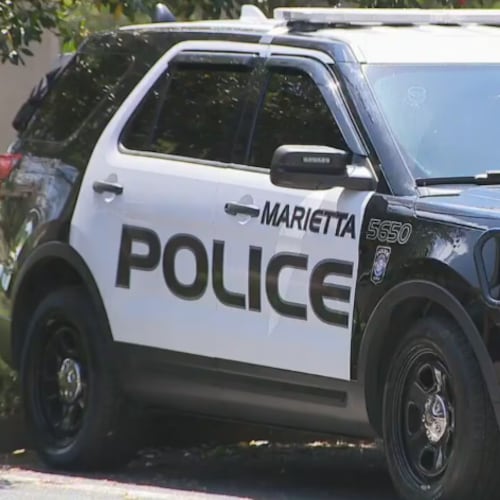Atlanta City Council plans to support Mayor Keisha Lance Bottoms’ proposal to partner with Fulton County to temporarily use the city’s detention center to hold some county inmates.
Councilman Michael Julian Bond initially sponsored a resolution to create a joint city-county task force for officials to consider selling or leasing Atlanta’s detention center to Fulton to address Fulton jail’s overcrowding issue.
But during Monday night’s meeting, the council voted unanimously to replace Bond’s effort with a new resolution sponsored by council members Joyce Sheperd and Bond. The new resolution supports ongoing conversations between the Bottoms administration and Fulton about a partnership involving Atlanta’s detention center.
The Atlanta Journal-Constitution last week obtained a memo from the mayor’s office that outlined the city’s proposal to use the detention center to house up to 150 Fulton County inmates through a re-entry program. Those inmates must be within six months from the completion of their county jail sentence and would be given access to housing, jobs and other services. Fulton County would partially fund the program.
The proposed partnership would also create a 24/7 pre-arrest diversion site at the city detention center, according to the resolution.
However, the new resolution states the City Council will still create a joint committee to resolve Fulton jail’s overcrowding issues if city and county officials fail to reach a consensus on the proposal by May 31. The resolution urges the mayor’s office to hold discussions on the proposal with the Fulton County Commission, Fulton Commission Chairman Robb Pitts, and Fulton County Sheriff Pat Labat.
Matthew Blakely, a spokesman for Pitts, said in a statement Monday night that Pitts is thankful the City Council took this step towards solving the overcrowding at the Fulton County Jail.
“His discussions with Mayor Bottoms have been productive and he appreciates the City Council encouraging those to continue,” Blakley said.
Bond called the new resolution a “great compromise” in his praise for Sheperd’s interactions with Fulton officials to create the resolution.
“Hopefully it will result in something positive that not only provides future programming to help people … but to also have an immediate effect of getting those individuals out of those poor and inhumane conditions at the Rice Street jail,” Bond said, referring to Fulton jail.
The mayor’s office told the council the city is waiting for Pitts to draft a letter of intent, according to the resolution. If Fulton agrees with the proposal, the two local governments will draft an intergovernmental agreement for approval by the City Council and Fulton’s Board of Commissioners, according to the resolution.
The council unanimously passed the resolution after 8 p.m. following nearly six hours of public comment on the issue. The council initially postponed their vote last month, and residents for weeks now have submitted hours of public comments for and against the idea.
Mayor Bottoms and local activists want to close Atlanta’s detention center. Bottoms wants to move forward with the Atlanta City Jail task force recommendation last year to raze Atlanta’s detention center to build a community center focused on justice reform.
Fulton County Sheriff Labat and several business leaders said a joint task force would address the rise in violent crime.
Residents, such as Shirley Gray, called the proposal to close the city jail “absolutely ridiculous.” Diane Butler of Midtown said the joint committee would “keep us safer.”
But Mark Posen of Tuxedo Park said selling the jail “isn’t appropriate.” Donna Hubbard told the council to renovate Atlanta’s detention center into a space for Atlanta’s residents.
“The last several years in the United States have demonstrated that the people want less policing and less jail rather than more,” said Scott Ritchie.
Atlanta Journal-Constitution reporters J.D. Capelouto and Ben Brasch contributed to this article.
About the Author
Keep Reading
The Latest
Featured



